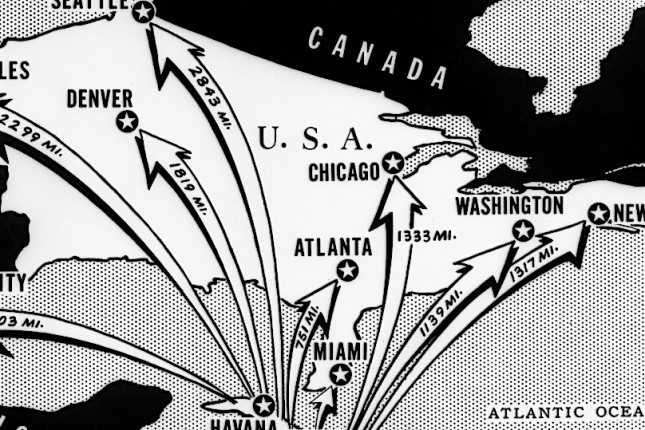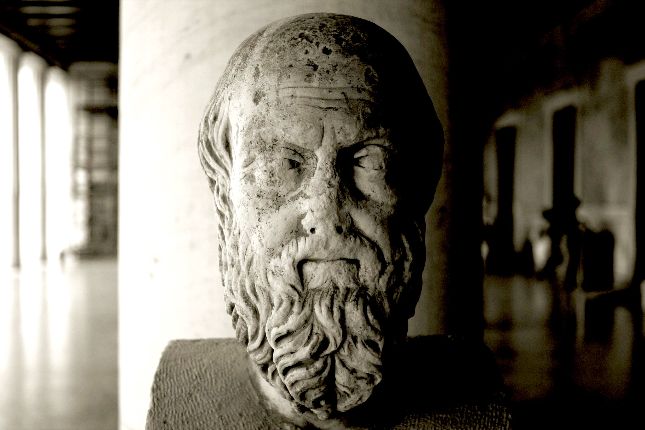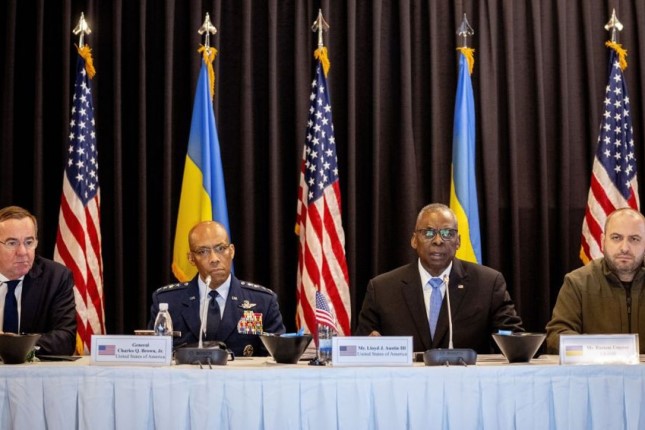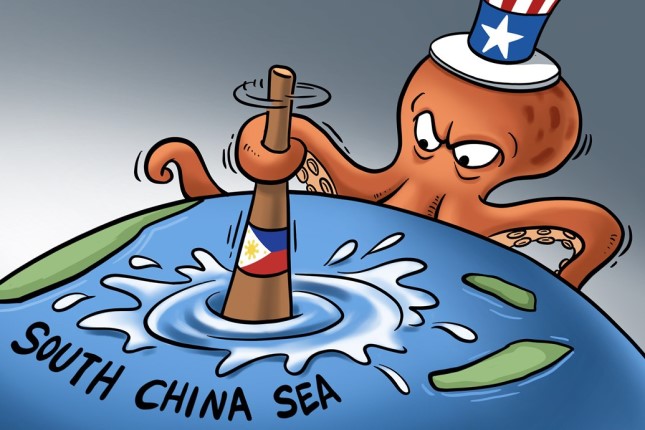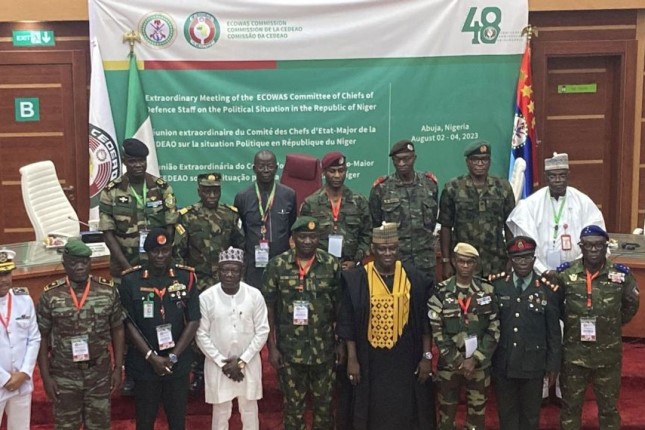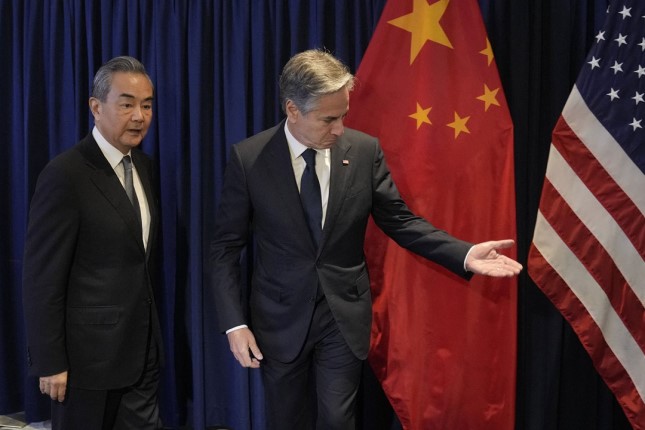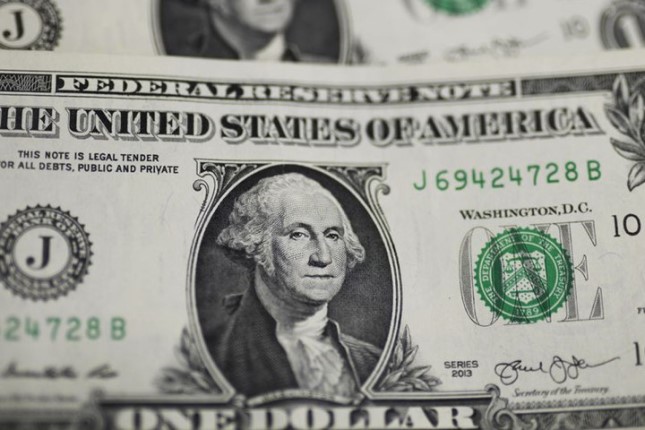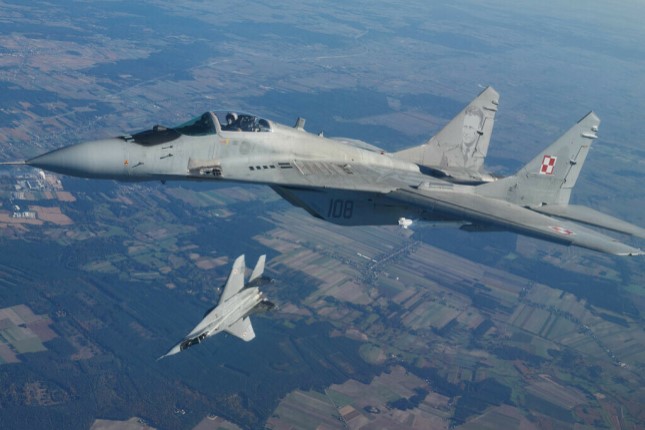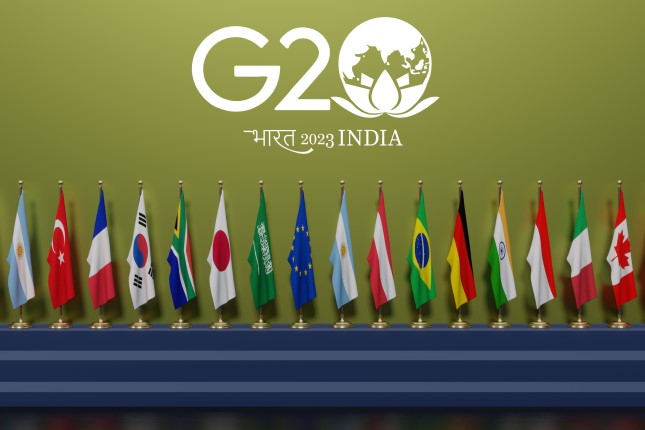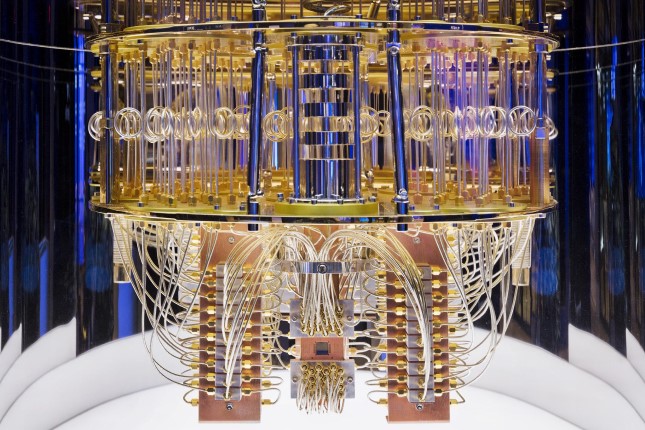As the list of those who take the looming threat of nuclear war seriously keeps growing, let’s try to analyze what brought us to this sad state of affairs.
During the Cold War there were similar dangerous moments, but John F Kennedy and Nikita Khrushchev, as well as Ronald Reagan and Mikhail Gorbachev, managed to avoid the worst-case scenario. George H.W. Bush talked in 1990 about a “Europe whole and free” and a new “security architecture from Vancouver to Vladivostok,” while Boris Yeltsin, during his 1992 address to the joint chambers of Congress, exclaimed, “God bless America.”
So, what went wrong? Why are we talking about nuclear war again? According to Washington, Putin and his desire to restore the Soviet empire are to blame. Moscow points the finger back at Washington for its vision of a unipolar world order under U.S. hegemony. Here is my brief take and I would be happy to debate those who see it differently. Perhaps during such exchanges, we could come up with some ideas for avoiding our mutual extinction.
December 25, 1991
The Soviet flag over the Kremlin comes down, Russian white-blue-red (symbolically the same colors as the American flag) comes up. It looked like the new era of peace, friendship, and mutually beneficial cooperation had arrived, but regrettably, as we see now, it hasn’t.
1993 – 2001
Bill Clinton presides over the greatest robbery of the 20th Century and NATO expansion.
The term “Russiagate” entered the American media space much earlier than during Hillary Clinton’s failed 2016 presidential campaign, when she tried to blame Russia for her loss. This term was first used by Washington Post correspondent David Ignatius, who is now one of the harshest critics of Russia.
But back in 1999 in his Washington Post article “Who Robbed Russia?” he highlighted some of the most damning revelations of the multi-billion robbery of Russia, involving help from the help of the Bank of New York and with the acquiescence of the Clinton administration. Ignatius wrote: “By allowing the oligarchs — in the name of the free market — to grab Russia’s resources and siphon anything of value into their own offshore bank accounts, the United States poisoned Russia’s transition from communism… What makes the Russian case so sad is that the Clinton administration may have squandered one of the most precious assets imaginable — which is the idealism and goodwill of the Russian people as they emerged from 70 years of Communist rule. The Russia debacle may haunt us for generations.”
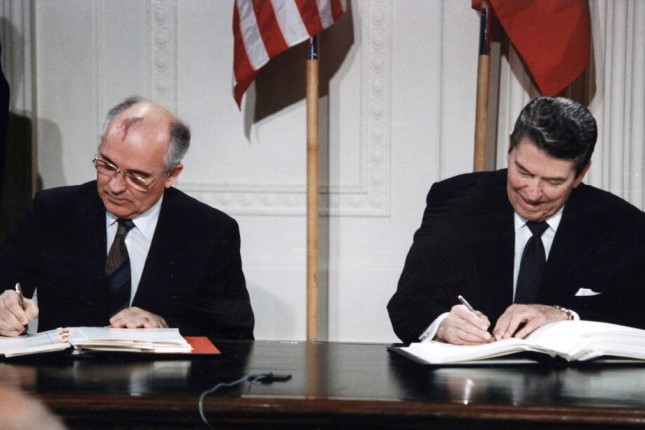
U.S. President Ronald Reagan and Soviet General Secretary Mikhail Gorbachev signing the INF Treaty in the White House in 1987. Photo: White House Photographic Office – National Archives and Records Administration / Wikimedia Commons.
A Congressional September 2000 report about the Clinton Administration’s misdeeds in Russia contains many other details on the same subject.
Clinton also meddled in Russia’s 1996 presidential elections. Then he started the first round of NATO expansion, despite the objections of many prominent experts, including former U.S. government officials, members of Congress, and diplomats. “For example, 50 members of the Arms Control Association wrote a letter to Clinton saying: “We, the undersigned, believe that the current U.S.-led effort to expand NATO is a policy error of historic proportions. We believe that NATO expansion will decrease allied security and unsettle European stability.”
“We’ll be back on a hair-trigger” Senator Daniel Patrick Moynihan, a New York Democrat, said during the debates in the Senate. Moynihan continued: ‘We’re talking about nuclear war. It is a curiously ironic outcome that at the end of the Cold War, we might face a nuclear Armageddon.’
Democratic Party Senator Joseph Biden, while calling Moynihan “the single most erudite
and informed person in the Senate,” said he disagreed with him and pushed for NATO’s expansion, even though Biden admitted it would draw a hostile Russian reaction.
One of America’s most distinguished diplomats and Russia experts, George Kennan, called NATO expansion “a fatal foreign policy mistake.” The Clinton administration’s euphoria about winning the Cold War, and the dawning of what they saw as an era of a unipolar world under total
American leadership, some called it hegemony, made them believe that Russia and her interests were no longer relevant. In their calculations, from now on, Moscow would have no choice but to obey orders from Washington since it had nowhere else to go.
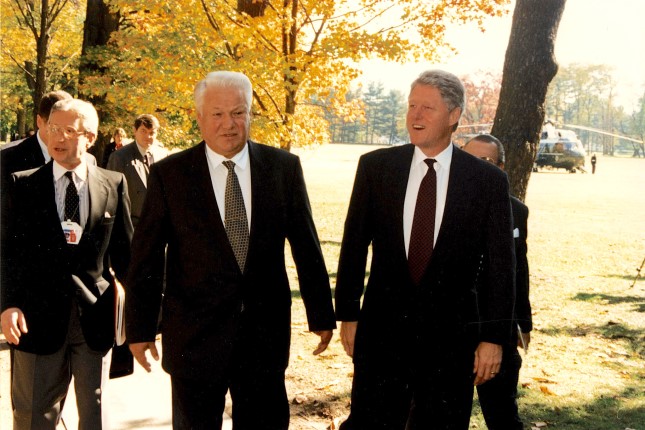
Russian President Boris Yeltsin and President Bill Clinton meet at the home of former U.S. President Franklin D. Roosevelt, 1995. Photo: FDR Presidential Library and Museum via Flickr.
2001 – 2009
George W. Bush thanked Putin for help after 9/11, then paid him back with the war in Iraq, abrogation of the Anti-Ballistic Missile (ABM) Treaty in December 2001, color revolutions in the post-Soviet space, and pushing to bring Ukraine and Georgia into NATO.
This is what Bush said in November 2001 following Putin’s support for the Afghan operation a month earlier: “A lot of people never really dreamt that an American President and a Russian President could have established the friendship …. to establish a new spirit of cooperation and trust so that we can work together to make the world more peaceful… I brought him to my ranch because, as the good people in this part of the world know, you only usually invite your friends into your house… a new style of leader, a reformer, a man who loves his country as much as I love mine… a man who is going to make a huge difference in making the world more peaceful, by working closely with the United States.”
What a spirit of sanity from a man who would oversee a disastrous two terms in office that included the war in Iraq and an abrogation of one of the most strategic anti-nuclear war treaties.
Russia considered NATO’s statement during its April 2008 Bucharest summit that Ukraine and Georgia would become part of the Western military bloc to be an existential threat.
2009 – 2017
Barack Obama oversaw a short-lived “Reset” and gave a Ukrainian portfolio to his VP Joe Biden, which he used to coordinate the February 2014 regime-change coup in the country, managed by Victoria Nuland, and to make lots of money for his family via his son, Hunter, both in Ukraine and around the world.
Russiagate 2.0 orchestrated by Hillary Clinton and the Deep State derailed Donald Trump’s presidency and his efforts to improve U.S. - Russia relations.
2017 – 2021
Donald Trump was accused of being a Russian stooge. Four years of harassment by the Washington Swamp. Survived two impeachment efforts. Lost the 2020 elections due to the success of Biden’s virtual campaign and corrupt media to shift the blame for Hunter’s “Laptop from Hell” onto Russia.
2021 – now
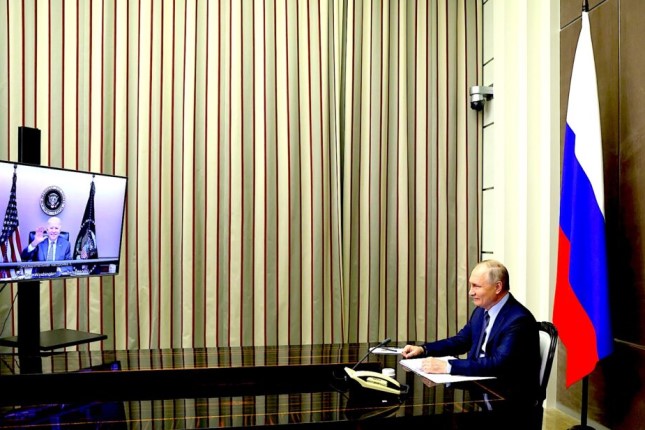
Dec. 7, 2021: U.S. President Joe Biden, on screen during video call with Russian President Vladimir Putin. Photo: Kremlin.ru / CC BY 4.0 / Wikimedia Commons.
Joe Biden rejects Russia’s proposals in December 2021 for the mutual security guarantees that included a neutral status for Ukraine. Destruction of the Nord Stream pipelines. Declared his goal of achieving a devastating strategic defeat of Russia. Continues multi-billion dollar funding of Ukraine for “as long as it takes.”
During a recent speech at the EU Parliament’s foreign affairs committee, NATO Secretary General Jens Stoltenberg admitted that the war in Ukraine was the result of NATO expansionism.
In his comments, he stated that: “In the autumn of 2021, Putin sent a draft treaty that he wanted NATO to promise, never to enlarge NATO, to remove our military infrastructure in all Allies that have joined NATO since 1997, introducing some kind of B, or second-class membership. So he went to war to prevent NATO, more NATO, close to his borders. We rejected that.”
Well, Putin only wanted NATO to honor the pledge “not to expand one inch East” given to Gorbachev by Western leaders in exchange for allowing the reunification of Germany. The document confirming this is available in the U.S. National Archives.
By accepting at least one – which I believe is the most important point of Russia’s proposal – to make Ukraine neutral, Washington and NATO would show goodwill and readiness for negotiations. Unfortunately, they rejected this plan outright.
Conclusion
The current nuclear threat will end when Washington orders Kyiv to search for diplomatic solutions. However, as long as Biden is in the office that is unlikely. For him, too much is at stake, and the interests of the American people who are in favor of ending this war are secondary.
Therefore, we are entering two races: the U.S. presidential election, and how to avoid extinction. The main issue is Ukraine’s neutrality. How important is that for the American people to risk annihilation?
Main photo: The relative ranges Soviet missiles and bombers — the Il-28, SS-4 and SS-5 — based on Cuba in nautical miles © U.S. Defense Intelligence Agency / Wikimedia Commons.
Source: Consortium News.
